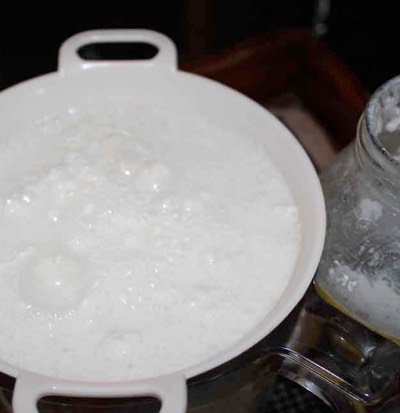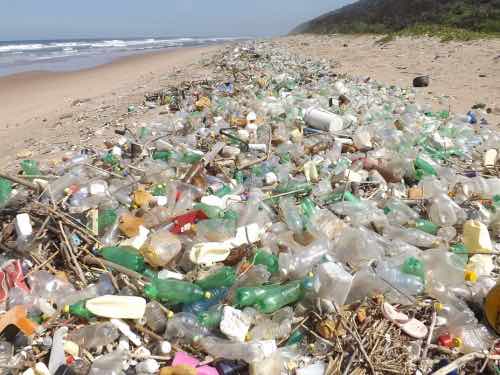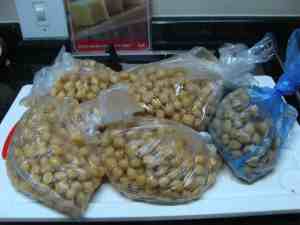| Back to Back Issues Page |
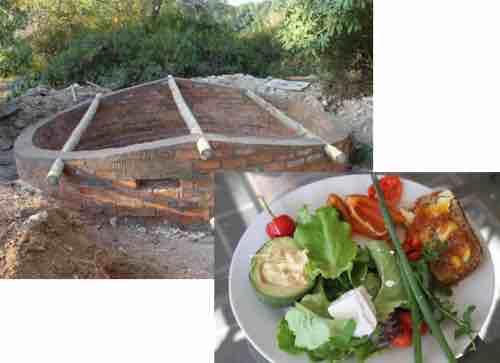 |
|
Diseases from plastic exposure February 03, 2024 |
DearDiseases from plastic exposureResearchers are now adamant; the diseases from plastic exposure are diverse and very powerful. That may be the chemicals in the plastics themselves, or other noxious substances that bind onto them; for example molecules of a known cancer-causing weedicide onto the wall of the container itself. The long and the short of it is that we should be doing a lot more to protect ourselves from the noxious effect of these substances on our wellbeing if we want to live long in the land.
Cyan ZonesWelcome to the world of Cyan Zones; creating little havens intent on protecting both ourselves and Mother Earth in this world hostile to wellness and careless of preserving the planet in its once pristine state.Endocrine-disrupting chemicalsMany chemicals that we are exposed to on a daily basis have been shown to disturb the body's hormone systems. That makes us prone to diabetes for example, infertility and neurological diseases; and a host of other conditions.Researchers have shown that the disease burden in the US from EDCs is over $250 billion annually; that's massive. Could that Parkinsonian tremor be because you send your jackets regularly for drycleaning? Or that lymphoma since you live in an area where fields and vines are sprayed with toxic chemicals that float into and invade your space? Could your daughter's breast cancer have been caused by the nanoparticles of plastic from teabags. This isn't wild science fiction. Can anything be done about it? 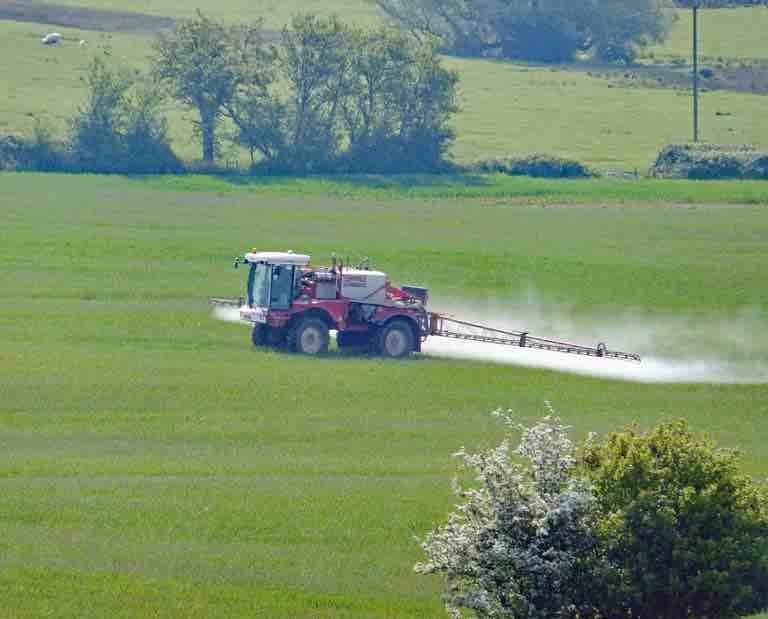
A world largely devoid of Parkinson's Disease Roundup disrupts male reproductive functions by triggering calcium-mediated cell death in rat testis and Sertoli cells Plastic Teabags Release Billions of particles into each cup. Flame retardantsFlame retardants are everywhere and extremely difficult to avoid. They are sprayed onto textiles, furnishings and carpets, for example.The first step in protecting ourselves is simply knowledge; grasping something of these toxic chemicals and considering how we could lessen our exposure to them. Could we tile our new home, rather than use carpets for example? Food packagingFood packaging is ubiquitous; and extremely difficult to avoid. One simple step would be to return to a green grocer where the fruit and vegetables lie loose for us to pick and choose, rather than wrapped in plastic.The phthalates in food packaging are linked to infertility, one in six couples worldwide are battling; and childhood obesity. Phthalates are also strongly linked to preterm births; over 50,000 per year in the US according to The Lancet Planetary Health journal. The numbers are "on the rise." The fast food industry of course wraps everything in polystyrene and plastic. We can't avoid it but could we reduce our exposure to these endocrine-disrupting chemicals? Could you for example take your own mug with you when buying a cup of coffee? The linings of cansChemicals known as bisphenols are used to line cans; they adversely affect our immune systems opening us up to a host of diseases. It's a subject none of us really want to think about. It would mean making your mushroom soup from scratch rather than buying it ready-made at the grocery store.That would be good in any case; canned soups are loaded with extremely large amounts of salt.
Non-stick cooking utensilsMost of us know not to scratch non-stick cooking utensils; they are lined with toxic PFASs which are linked to kidney failure.We advocate rather using caste-iron and enamel; both pots and pans. What's to be done?The first simple step says Dr Leonardo Trasande, MD is not to use any plastic in the microwave whatsoever.Secondly he advocates not putting plastic food containers into the dishwasher. And thirdly of course, to limit all canned food. None of these would sit comfortably with many people but each would in its own small way reduce the risk of getting cancer, diabetes or Alzheimer's Disease. Protect yourself
Fermenting more probiotics in your own kitchen is not difficult; they are known to support the friendly bacteria in the gut that undergird our immune systems. Kefir for example can be made in less than five minutes. It's rather sour so you could easily turn it into a smoothie; the perfect complete breakfast.
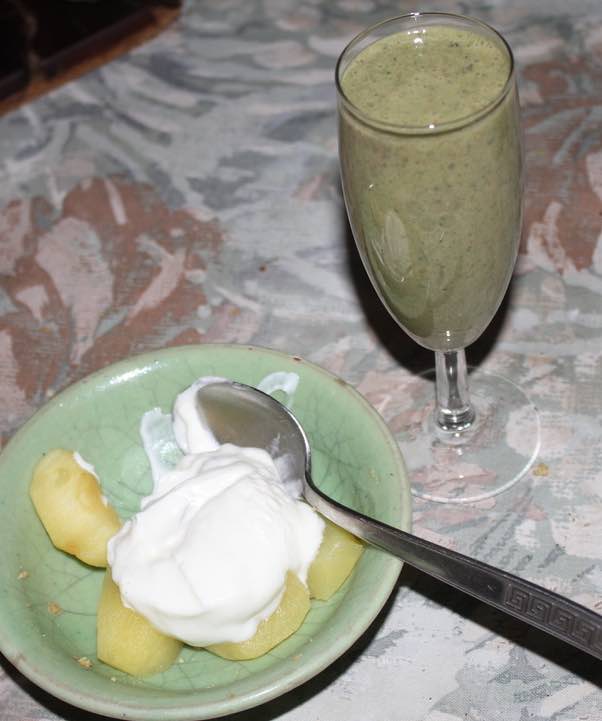
ObesityObesity is probably the most challenging health issue of our time. We saw last month how a new generation of drugs can influence our hormone systems, affecting hunger for example.It comes perhaps thus as a surprise that our struggle with obesity may also have a great deal to do with the endocrine-disrupting chemicals in plastic. Chemicals whether from our environment, additives in our food or medications can profoundly affect our wellbeing. New research released in January, 2024 reveals that many common diseases including leukemias in children, breast cancer and metabolic syndrome may be initiated by these endocrine disruptors[2].
Slow and determined lifestyle management for plastic avoidanceWe saw last month that slow and determined lifestyle management is the only way to deal with obesity.One part of that lifestyle management is the avoidance of the toxic chemicals that are all around us. There's nothing particularly onerous about not using plastic in the microwave, for example.
Plastic on our beaches
Plastic is not just ruining our health but every aspect of our lives. There are microparticles in the water we drink, our leisure time on the beaches and in the sea-salt we sprinkle generously on our food; and even from teabags. It's been said many times before but now with increasing urgency as we realise so many of the diseases from plastic exposure are reaching daily into our lives. * Reduce * Reuse * Recycle * Repurpose Impossible dreamsCould you from today halve the plastic you are sending to the landfill?It may mean changing your grocery store; fruit and veg not wrapped in plastic. It will mean reusing those strong plastic bags for other purposes. Chickpeas are a big part of our lives; we soak, pressure-cook and freeze them in small packets, repurposed from other foods. Perhaps it's time to start thinking of storing them in glass instead.
Cooking-chickpeas.html "So many of our dreams at first seem impossible, then they seem improbable; and finally when we summon the will, they soon become inevitable." — Christopher Reeve Take-homeThe take-home from this essay is that escaping the ravages of plastic is a mountain to climb. We may never reach the summit but we can try at least to get to Base Camp; or both our own wellness and that of the Earth will plummet. In fact it's no exaggeration to say we and the planet are already in free fall.This is a true Cyan Zone issue.
It's a great blessing that in our mid-seventies neither the good wife nor I have any health issues; or take any medication whatsoever. It's not because of our genes or good luck that we have outlived our parents; we work hard at it. Our commitment to wellness has paid great dividends. We are unabashed disciples of Hippocrates, the Father of Healthcare; "let your food be your medicine," said he. I don't have timeMany people complain they simply don't have time to go the extra mile. Whilst some are hopelessly over-committed, particularly women with full time jobs most of us make the space for those things that enamour us.It's my honest belief that we either make our health a priority or we will be forced to find a lot more time to consult doctors and pharmacists. The diseases from plastic exposure can be significantly reduced with a minimum of effort. Create your own Cyan ZoneCare for the planet in whatever way you can. Look after yourself and the family in every possible manner; not only other people get these preventable diseases.It will mean a total overhaul of every aspect of your lifestyle; it has in fact been the most rewarding facet of my whole being. We look upon caring for our bodies as a spiritual duty, on a par with reading of the scriptures and prayer. This human frame is the dwelling place of Almighty God; it behooves us to look after it.
Bernie
1. What's the Disease Burden From Plastic Exposure?
Create a cyan zone at your homeClick here to return to the home page and subscribe to this newsletter, if you have not already done so. Care for the world, look after your family.It is simple to unsubscribe if you later find these newsletters boring or irrelevant. Don't spam, but please forward this newsletter to a few selected friends who you think might be interested in sitting under the trees they once planted, sipping tea and watching the great-grandchildren growing up; and still be able to take long walks.
x A world largely devoid of Parkinson's Disease x The impact of friendly bacteria in the tum on the prevention of cancer x There's a hole in the bucket x Everyone is talking about weight loss drugs x Pull the sweet tooth x If you suffer from heartburn plant a susu x Refined maize meal and stunting x Should agriculture and industry get priority for electricity and water? x Nature is calling x Mill your own flour x Bake your own sourdough bread x Alternative types of water storage x Wear your clothes out x Comfort foods x Create a bee-friendly environment x Go to bed slightly hungry x Keep bees x Blue zone folk are religious x Reduce plastic waste x Family is important x What can go in compost? x Grow broad beans for longevity x Harvest and store sunshine x Blue zone exercise x Harvest and store your rainwater x Create a cyan zone at your home |
| Back to Back Issues Page |
